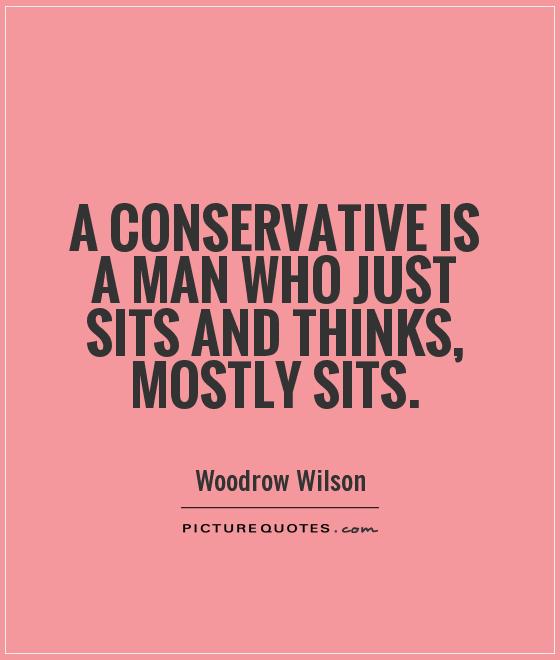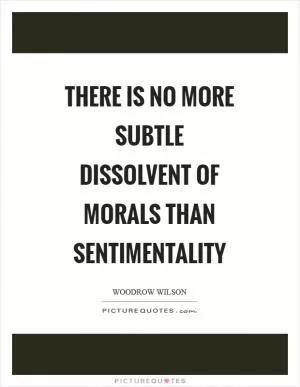A conservative is a man who just sits and thinks, mostly sits

A conservative is a man who just sits and thinks, mostly sits
Woodrow Wilson, the 28th President of the United States, was known for his eloquent and thought-provoking words. One of his famous quotes, “A conservative is a man who just sits and thinks, mostly sits,” reflects his views on conservatism and the importance of critical thinking.Wilson’s statement suggests that conservatives are often resistant to change and prefer to maintain the status quo. By “sitting and thinking,” Wilson implies that conservatives are more inclined to reflect on traditional values and beliefs rather than embrace new ideas or innovations. This characterization of conservatives as passive and contemplative individuals highlights Wilson’s perception of their reluctance to challenge established norms.
However, Wilson’s words also convey a sense of respect for the contemplative nature of conservatism. By emphasizing the act of thinking, Wilson acknowledges the value of introspection and reflection in shaping one’s beliefs and values. In this sense, Wilson’s quote can be interpreted as a recognition of the intellectual depth and deliberation that often characterize conservative thought.
Furthermore, Wilson’s statement can be seen as a commentary on the role of conservatism in society. While progressives may advocate for change and reform, conservatives play a crucial role in preserving tradition and stability. By “sitting and thinking,” conservatives contribute to the ongoing dialogue and debate that shapes the direction of society.
Wilson’s words also highlight the importance of critical thinking in political discourse. By encouraging individuals to engage in thoughtful reflection, Wilson emphasizes the need for reasoned debate and dialogue in shaping public policy. In this sense, Wilson’s quote serves as a reminder of the value of intellectual engagement and open-mindedness in political discourse.
Overall, Wilson’s quote “A conservative is a man who just sits and thinks, mostly sits” offers a nuanced perspective on conservatism and the role of critical thinking in shaping political beliefs. By emphasizing the importance of reflection and contemplation, Wilson’s words invite us to consider the complexities of political ideology and the value of intellectual engagement in shaping our views on society.












 Friendship Quotes
Friendship Quotes Love Quotes
Love Quotes Life Quotes
Life Quotes Funny Quotes
Funny Quotes Motivational Quotes
Motivational Quotes Inspirational Quotes
Inspirational Quotes